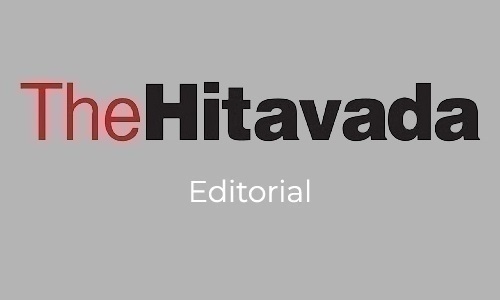UNSC REFORMS
| Date :15-Sep-2023 |

TOPPING the appreciation the world is showering upon Prime Minister Mr. Narendra Modi for the success of G-20 Summit in New Delhi is the crisply-worded praise by Mr. Dennis Francis, President of the United Nations General Assembly (UNGA). Showering an uninhibited praise on Mr. Narendra Modi, Mr. Francis has said in a media interview that the unanimous New Delhi Declaration is a testament to Mr. Modi’s diplomatic skill and dexterity. Calling the statement a “fantastic outcome” of the G-20 Summit, Mr. Francis has stressed that the world needs “solidarity and cooperation” to build better understanding of the global community. In the same breath, Mr. Francis also stated that the United Nations Security Council (UNSC) also needed urgent reforms -- understandably referring to the demand for inclusion of India into the top UN body as a full member. This stand points to a changing world opinion on the issue India has been pressing for for years. More and more people who matter are becoming amenable to reforms.
Mr. Dennis Francis, who took over UNGA presidency just a few months ago, insisted that there was a need to democratise the UNSC, possibly suggesting that more members should be added to the core body. It is only natural that India has the most important stake in the UNSC reform so that it can become a full member of the UNSC and play its deserving role in global matters.
It is actually a matter of detail, so to say.
For, even if it is still not the UNSC full member, India has already assumed its own place in the Sun playing a critical role in world affairs. The New Delhi Declaration is the latest testimony to India’s growing diplomatic clout and international prowess -- as has been rightly indicated by Mr. Dennis Francis.
The New Delhi Declaration has won an unequivocal praise from all quarters around the world for its unanimity despite the contentious issue of Russia-Ukraine conflict. Various world powers had to give up their obstinate stances on the conflict at India’s insistence because they saw a good sense in the argument put forward by the Indian delegation in the 200 hours of gruelling negotiations that preceded the New Delhi Declaration. Even if a few nations had agreed to accommodate the Indian point of view for whatever reason, it was not without any substantial reason. For, in international diplomacy, nothing is done only to please somebody -- unless of course there is something much bigger at stake. Obviously, India has has acquired a critical mass in global diplomacy so that the world does not want to ignore New Delhi’s point of view.
This latest development -- of course backed by many similar ones previously -- makes a strong case for urgent reforms in the United Nations Security Council and the subsequent inclusion of India as a full member there.
Enough indications are available from various corners of the international diplomatic arena that many factors may come together to agree to undertake serious and dynamic reforms of the UNSC in particular and the UN in general. Once that movement gathers momentum, India will go still closer to realising its effort to become a full member of the Security council -- and then start participating in world affairs from a vantage position.
Prime Minister Mr. Narendra Modi has everything possible in the past 8-9 years to achieve this national goal, a testimony to which is available in appreciation of persons of importance such as Mr. Dennis Francis. He is a much respected global diplomat and his word is always listened to with much attention. His opinion on India at this crucial hour has its own criticality which will go a long way in adding value to building a case for UN reforms.